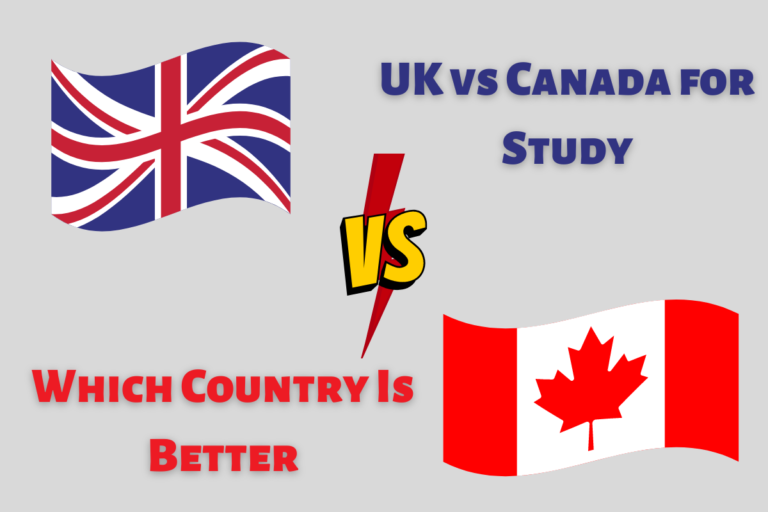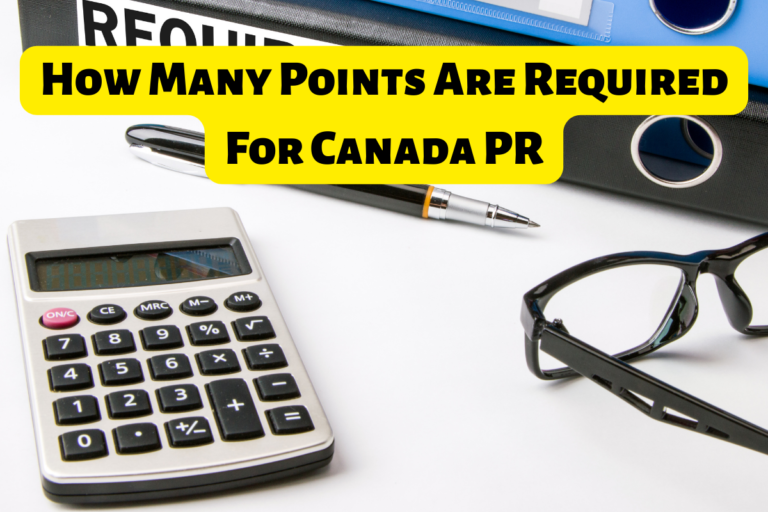Canada Student Visa Process (2023)
Process of Applying for a Student Permit
If you are an international student and want to study in Canada, you will typically need a study permit or a student visa. Here is some information to help you understand the process:
- Determine if you need a study permit: You may not need a study permit if your course or program is less than 6 months. However, it’s always best to check with the Canadian embassy or consulate in your country to confirm whether you need a study permit.
- Apply for admission to a Canadian institution: Before you can apply for a study permit, you need to apply and receive admission to a Canadian institution.
- Gather required documents: You will need several documents to apply for a study permit, including a valid passport, proof of acceptance from a Canadian institution, proof of financial support, and a letter of explanation.
- Apply for a study permit: You can apply online or on paper through the Canadian government’s website. You will need to pay a fee when you submit your application.
- Wait for a decision: It can take several weeks or months to process a study permit application. You can check the status of your application online.
- Prepare for your arrival: Once you receive your study permit, you can start preparing for your arrival in Canada. You may need to obtain a visitor visa or an Electronic Travel Authorization (eTA) to enter Canada.
Note that the process and requirements for obtaining a study permit may vary depending on your country of origin and the program you plan to study. It’s important to check the specific requirements for your situation before applying.
The 7 Important Study Visa Requirements for Canada
Here are the 7 important study visa requirements for Canada:
- Acceptance letter from a Canadian institution: To apply for a study visa, you need to have an acceptance letter from a Designated Learning Institution (DLI) in Canada. The institution must be approved by the Canadian government to host international students.
- Proof of financial support: You need to show proof that you have enough money to pay for your tuition fees, living expenses, and return transportation. The amount of money you need depends on your program, your length of stay, and the location of your institution.
- Police certificate: You may need to provide a police certificate to show that you have a clean criminal record. This requirement depends on your country of origin and the length of your stay in Canada.
- Medical exam: You may need to undergo a medical exam to show that you are in good health. This requirement also depends on your country of origin and the length of your stay in Canada.
- English or French language proficiency: You may need to demonstrate your proficiency in either English or French by taking a language test. The Canadian government accepts several language tests such as IELTS, TOEFL, and CELPIP.
- Valid passport: You need to have a valid passport to apply for a study visa. Your passport must be valid for the duration of your stay in Canada.
- Application fee: You need to pay a non-refundable application fee when you submit your study visa application. The fee amount depends on the country you are applying from and the type of application you are submitting.
It’s important to note that the study visa requirements may vary depending on your country of origin and the program you plan to study. You should check the specific requirements for your situation before applying.
Annual University Intakes in Canada
In Canada, there are generally two main intakes for universities: Fall (September) and Winter (January). However, some universities may also offer a Spring (May) intake or may have multiple start dates throughout the year.
The Fall intake is the most popular and generally has the largest number of available programs and courses. It’s also the primary intake for most undergraduate programs. The application deadline for the Fall intake is typically between January and April of the same year.
The Winter intake is a smaller intake, and not all universities offer this option. It’s mainly for students who miss the Fall intake or for those who want to transfer from another institution. The application deadline for the Winter intake is typically between September and November of the previous year.
The Spring intake is also not as common and is generally offered by a limited number of universities. It’s mainly for students who want to start their studies in May. The application deadline for the Spring intake is typically between January and March of the same year.
It’s important to note that the application deadlines and start dates may vary depending on the university and program you are applying for. It’s always best to check the specific deadlines and start dates with the university’s admission office.
Documents Required to Immigrate to Canada on a Student Visa
If you are planning to immigrate to Canada on a student visa, you will need to provide several documents to the Canadian immigration authorities. Here are some of the documents you may need to provide:
- A valid passport: You will need a valid passport from your home country or country of residence.
- Acceptance letter from a Canadian educational institution: You will need to provide proof of acceptance from a designated learning institution (DLI) in Canada.
- Proof of funds: You will need to demonstrate that you have enough money to cover your tuition fees and living expenses during your stay in Canada. This can be in the form of bank statements, scholarships, or sponsorships.
- Police certificate: You may need to provide a police certificate from your home country or country of residence to show that you have a clean criminal record.
- Medical examination: You may need to undergo a medical examination to demonstrate that you are in good health and free from any infectious diseases.
- English or French language proficiency: You may need to provide proof of English or French language proficiency, depending on the language of instruction of your program.
- Study permit application: You will need to complete and submit a study permit application to the Canadian immigration authorities. This application includes details such as your personal information, educational history, and the purpose and length of your stay in Canada.
It’s important to note that the specific documents required may vary depending on your country of origin and the program you plan to study. It’s always best to check the specific requirements for your situation before applying.
Processing Fee for Canada Student Visa
The processing fee for a Canadian student visa, also known as a study permit, depends on the type of application and the country of origin. As of 2023, the fees are as follows:
- Study permit (including extensions) – CAD $150
- Study permit for a family member (spouse, partner, or dependent child) – CAD $150 per person
- Restoration of status as a student – CAD $350
- Work permit (if applied with a study permit application) – CAD $155
- Biometric fee – CAD $85 per person (required for most applicants)
It’s important to note that these fees are subject to change, so it’s always best to check the most up-to-date fee schedule before submitting your application. Additionally, some applicants may be required to pay additional fees, such as a medical examination fee or a police certificate fee.
Canada Study Visa Processing Time
The processing time for a Canadian study permit can vary depending on several factors, such as the applicant’s country of residence, the volume of applications being processed, and the completeness of the application.
As of 2023, the current estimated processing times for a Canadian study permit are:
- Online applications: 17 weeks (approximately 4 months)
- Paper applications: 25 weeks (approximately 6 months)
It’s important to note that these processing times are only estimates and are subject to change. Some applications may be processed faster or slower than the estimated times, depending on individual circumstances.
It’s always recommended to apply for a study permit as early as possible, ideally several months before the start of your program, to allow for ample processing time and to avoid any potential delays. Additionally, it’s important to ensure that your application is complete and includes all required documentation to help ensure faster processing times.




